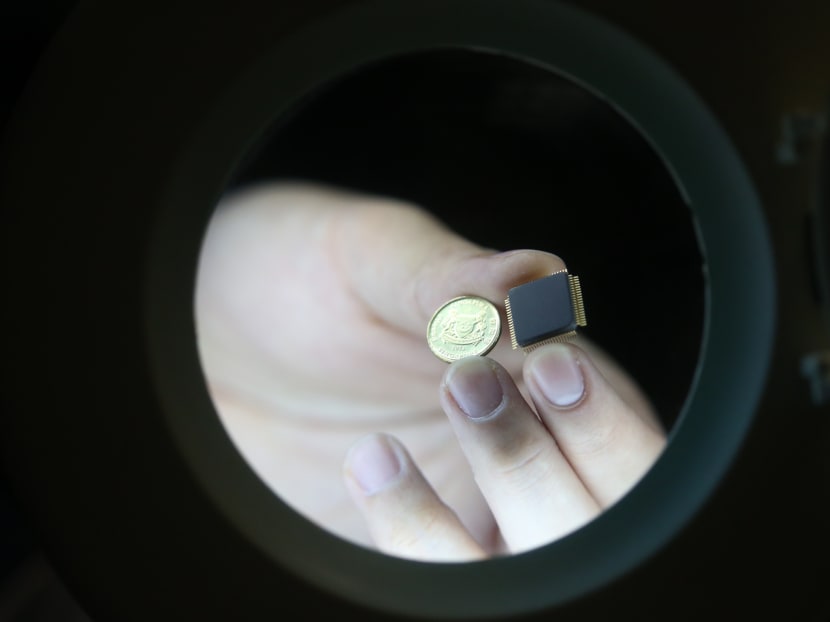NTU’s smart chips could lead to safer brain implants
SINGAPORE — Scientists at Nanyang Technological University (NTU) are developing a “smart” wireless chip that can isolate pertinent data for transmission.

NTU scientists have developed a small smart chip, which analyses data patterns, that can be paired with brain implants which allows for the efficient wireless transmission of brain signals. Photo: Don Wong
SINGAPORE — Scientists at Nanyang Technological University (NTU) are developing a “smart” wireless chip that can isolate pertinent data for transmission.
The chip will analyse and decode the data, before compressing the results and sending them wirelessly to a receiver. This way, the chip can function with less power. The feature will be a boost for paraplegic patients, for example, who can use such smart chips to move their prosthetic limbs without the need for wires attached to an external equipment.
“What we have developed is a very versatile smart chip that can process data, analyse patterns and spot the difference,” said Assistant Professor Arindam Basu from NTU’s School of Electrical and Electronic Engineering today (Feb 11).
“It is a hundred times more efficient than current processing chips on the market (and) we no longer need large batteries to power them.”
Although trials using similar technology are being conducted overseas, paraplegic patients in these trials have to be connected to external processors outside their bodies with wires.
Having a permanent opening in a patient’s head for the wires increases the risk of infections for the person, said Asst Prof Basu at a media conference. The smart chip — trained to analyse data patterns — can be used together with implants embedded in the paraplegic’s brain to understand the brain signals and move the prosthetic limbs.
Further trials are expected to take place later next year, although it may take up to a decade before the product hits the market.
Apart from developing it for medical purposes, NTU is working with Singapore Technologies Electronics to use the smart chips in battery-operated remote sensors, such as surveillance cameras, in order to reduce power consumption in these devices.
“(With the) traditional method, you have to transmit the images back to the base station and then analyse what’s going on. Transmitting images takes a huge amount of data and clogs up the network and power (consumption) is huge,” said Asst Prof Basu.
With the use of the chips, the remote sensors are able to pick out images that they have been programmed to look out for, and transmit that data back to command.
Field tests for the sensors will be carried out by the end of this year, and NTU hopes to market the chips for commercial use by the end of 2017.








